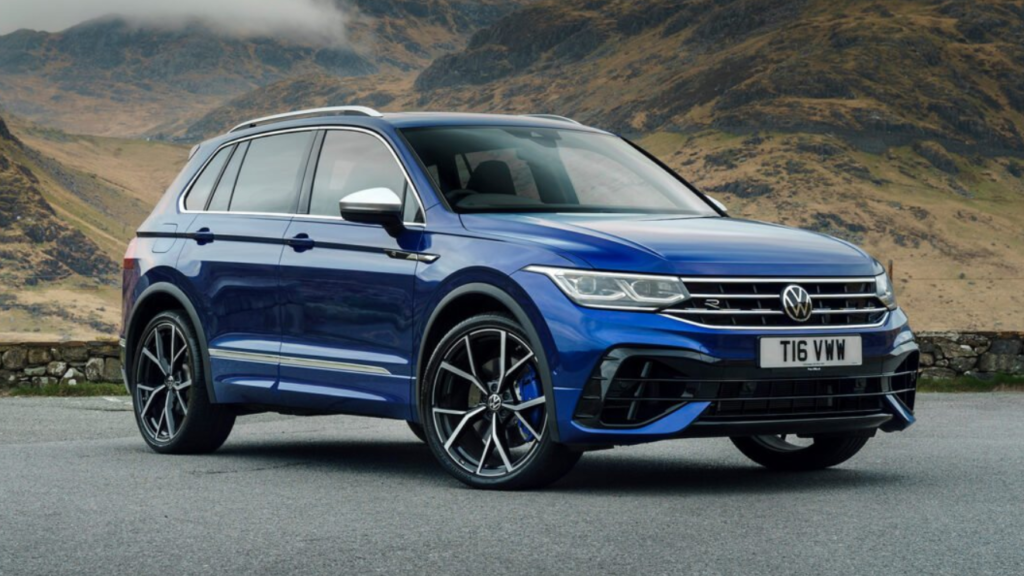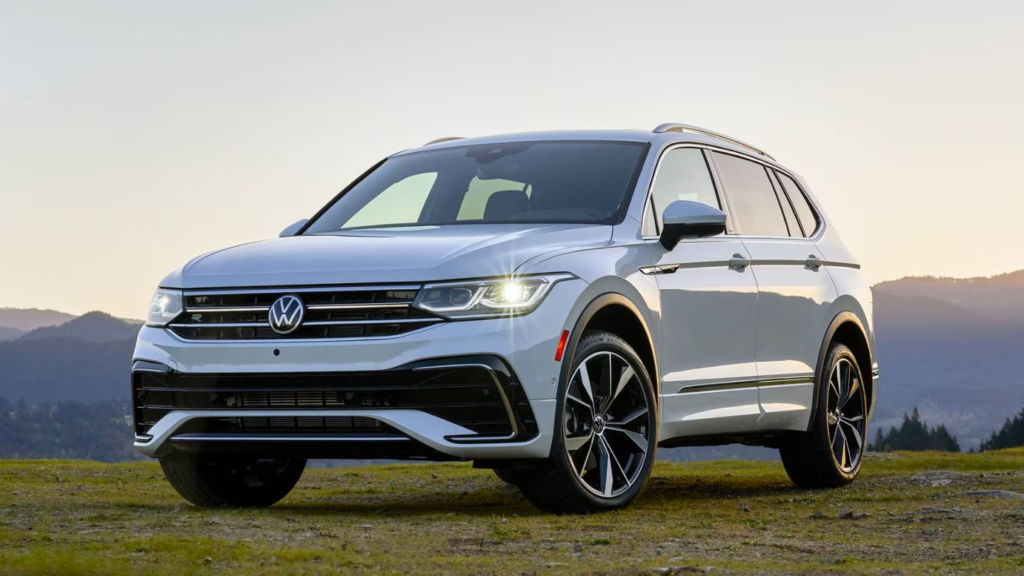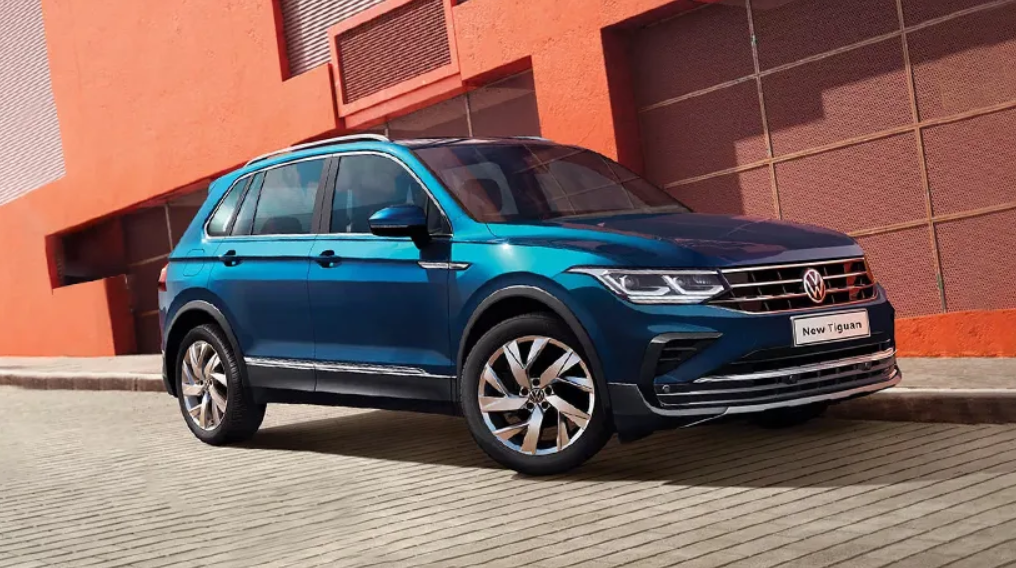In the modern automotive landscape, weight is more than just a number. It signifies engineering prowess, safety capabilities, and fuel efficiency. When it comes to a successful SUV like the VW Tiguan, understanding its weight becomes crucial.

The Stature of VW Tiguan in the SUV Segment
The VW Tiguan stands tall among its competitors in the SUV segment. Introduced in 2007, this mid-sized SUV from Volkswagen has managed to carve a niche for itself with its perfect blend of performance, style, and comfort. Over the years, as the SUV evolved, so did the VW Tiguan weight, reflecting advancements in technology and design enhancements.
The Significance of Weight in Modern SUVs
Weight plays a paramount role in shaping the performance, safety, and efficiency of modern SUVs. A well-optimized weight ensures smooth handling, efficient fuel consumption, and enhanced safety in the event of collisions. As such, the VW Tiguan weight has always been an area of focus for Volkswagen to maintain its competitive edge.
Unraveling Vehicle Weight Essentials
Before diving deeper into the specifics of VW Tiguan weight, it’s essential to grasp some foundational concepts related to vehicle weight.
Components Influencing VW Tiguan Weight
Several components contribute to VW Tiguan Weight:
- Chassis and Body: Typically made of steel or aluminum, they form the skeletal structure of the vehicle.
- Engine: Depending on the type (petrol, diesel, hybrid), engines can have varied weights.
- Interior components: Seats, dashboard, entertainment systems, and other amenities add to the weight.
- Safety Features: Airbags, reinforcement bars, and advanced tech gear.
- Wheels and Tires: Heavier wheels can add considerable weight to the vehicle.
Understanding these can provide insight into how the VW Tiguan weight has been adjusted over its generations.
Delineating Curb Weight from Gross Vehicle Weight
Curb weight refers to the total weight of the vehicle without occupants or cargo but includes essential fluids like oil and coolant. On the other hand, Gross Vehicle Weight (GVW) is the combined weight of the vehicle, its passengers, cargo, and all fluids. For consumers, knowing the VW Tiguan weight in terms of its curb weight can help in assessing its baseline before additional loads.
The Weight Journey: Evolution of the VW Tiguan
Every model and iteration of a vehicle tells a story, and so does its weight. The VW Tiguan’s story is one of innovation, refinement, and adaptation.
The Progressive Weight Variations Across Tiguan Generations
- First Generation (2007–2016): Launched as a compact crossover SUV, the initial VW Tiguan weight hovered around 1,508 kg for the base model. The emphasis was on creating a lightweight yet powerful SUV.
- Second Generation (2016–Present as of my last update): With enhanced features, increased dimensions, and a focus on luxury, the VW Tiguan weight experienced an uptick, averaging around 1,655 kg for its base models. Advanced models with more features, of course, weighed slightly more.
Factors Prompting Weight Shifts Over the Models
Several factors influenced the changes in VW Tiguan weight over the years:
- Material Advancements: Use of lighter, yet stronger materials allowed for weight optimization without compromising on strength or safety.
- Engine Evolution: As engine technologies evolved, their weights were adjusted, impacting the overall VW Tiguan weight.
- Tech Integrations: Introduction of advanced tech features, safety systems, and infotainment options also played a role in weight variations.
- Consumer Preferences: With consumers demanding more features and comfort, additions were made, influencing the VW Tiguan weight.
The VW Tiguan weight journey is one of balancing act—retaining performance while incorporating advancements, keeping safety paramount, and meeting consumer demands. The Tiguan stands as a testament to Volkswagen’s commitment to this delicate balance, ensuring that drivers get the best of all worlds.

Model-Specific Weight Analysis of VW Tiguan
Diving deeper into the realm of VW Tiguan, one soon realizes the varied spectrum this SUV offers. With each model offering something unique, the VW Tiguan weight across these models becomes a pivotal point of discussion.
VW Tiguan S
The baseline model of the Tiguan range, the Tiguan S, is meticulously designed to provide an optimal balance between features and weight. On average, the VW Tiguan S weighs around 1,635 kg. Its streamlined features set it apart without adding unnecessary heft.
VW Tiguan SE
A step above the base, the Tiguan SE comes packed with additional amenities. With enhancements in the infotainment system, safety features, and upholstery, the VW Tiguan SE weight sees a modest increase, averaging around 1,660 kg.
VW Tiguan SEL
Luxury and advanced technology become more pronounced in the Tiguan SEL. Equipped with premium audio systems, advanced navigation, and a panoramic sunroof, the VW Tiguan weight for the SEL model is approximately 1,685 kg.
VW Tiguan R-Line
The sporty R-Line is not just a visual treat but is also engineered for performance. Its sport-tuned suspension and unique R-Line design elements add to the VW Tiguan weight, bringing it to an estimated 1,710 kg.
Powertrain Choices and Their Impact on Tiguan’s Weight
The Heft of Different Engine Configurations
The engine, being the heart of the vehicle, plays a crucial role in determining the VW Tiguan weight. While the 2.0L TSI engine remains a common choice, its various tunings and configurations can lead to slight variations in weight.
Transmission Types and Their Weight Footprints
Transmission choices, though might seem minuscule, have a say in the VW Tiguan weight. The 8-speed automatic transmission, for instance, is crafted for seamless shifts, and its integration adds around 80-90 kg to the vehicle’s weight.
AWD vs. FWD: Weight and Performance Dynamics
All-Wheel Drive (AWD) systems, offering superior traction, inherently weigh more than the Front-Wheel Drive (FWD) counterparts. Opting for AWD can increase the VW Tiguan weight by approximately 50-60 kg, but it also significantly enhances performance, especially in challenging terrains.
Influence of Interior and Exterior Features on Weight
Advanced Tech Amenities and Their Weight Aspects
From touchscreen infotainment systems to state-of-the-art audio setups, the tech inclusions in modern Tiguan models certainly contribute to the VW Tiguan weight. Features like adaptive cruise control, lane assist systems, and digital cockpits add roughly 20-30 kg cumulatively.
Exterior Upgrades: A Weight Perspective
Elements like alloy wheels, roof rails, and chrome accents not only elevate the Tiguan’s aesthetics but also influence its weight. These exterior enhancements can add an estimated 15-25 kg to the VW Tiguan weight.
The Weight-Performance Equation of Tiguan
Acceleration Metrics in Context of Weight
Heavier vehicles typically take a tad longer to accelerate. However, the Tiguan, with its robust engine and transmission, ensures that any increase in the VW Tiguan weight is compensated by power, keeping acceleration metrics competitive.
Handling, Cornering, and Weight’s Role
Weight distribution is key for handling. Even with the increasing VW Tiguan weight across models, Volkswagen ensures optimal weight distribution, guaranteeing sharp cornering and stellar handling.
Efficiency of Braking Underlined by Weight
A vehicle’s weight directly impacts its stopping distance. Volkswagen’s precision engineering ensures that brakes in Tiguan models are calibrated considering the VW Tiguan weight, ensuring swift and safe halts.
The VW Tiguan weight plays a pivotal role in the vehicle’s overall performance, safety, and efficiency. Volkswagen’s meticulous attention to detail ensures that this weight is always optimized for the best driving experience.
Fuel Economy: The Weight’s Role in Efficiency
As the automotive industry evolves, so does our understanding of the relationship between vehicle weight and fuel efficiency. The VW Tiguan weight dynamics offer an intriguing insight into this balance.
Drawing Connections Between Weight and MPG
Fundamentally, a heavier vehicle consumes more energy to move, translating to more fuel consumption. For every additional 100 kg, a vehicle can experience a drop of about 0.3 to 0.7 MPG. The VW Tiguan weight, thus, plays an instrumental role in determining its fuel efficiency.
Striving for an Optimal Power-to-Weight Ratio
A vehicle’s power-to-weight ratio is pivotal in gauging its performance versus its efficiency. By enhancing engine performance while meticulously managing the VW Tiguan weight, Volkswagen achieves an optimal ratio, ensuring spirited drives without compromising on miles per gallon.
Delving into Safety: Weight Considerations of Tiguan
How Weight Facets Relate to Crash Test Scores
Heavier vehicles tend to fare better in crash tests due to increased momentum, making them less prone to drastic decelerations in a crash. The VW Tiguan weight provides a cushion in frontal crashes but also emphasizes the importance of advanced safety features to counterbalance potential rollover risks in SUVs.
Achieving Stability and Agility: A Weighted Discussion
The VW Tiguan weight distribution is engineered to offer both stability and agility. A lower center of gravity combined with strategic placement of heavy components ensures the Tiguan remains grounded, yet nimble, even in challenging driving scenarios.

Aftermarket Adaptations and Their Impact on Weight
Enhancements to Increase Heft
Aftermarket additions, from robust sound systems to tow bars, can significantly influence the VW Tiguan weight. These enhancements, while adding functionality or aesthetics, should be considered carefully for their impact on performance and fuel efficiency.
Solutions for Weight Reduction Without Sacrificing Functionality
Lightweight alloy wheels or shedding redundant components can help reduce the VW Tiguan weight. These modifications can improve efficiency and handling without sacrificing core functionalities.
Expert Advice: Managing Tiguan’s Weight for Peak Performance
Tips for Shedding Unneeded Load
Routine checks to remove unnecessary items, especially heavy ones, can help manage the VW Tiguan weight effectively. Tools, equipment, or accumulated clutter should be cleared regularly.
The Essence of Regular Maintenance for Weight Equilibrium
Ensuring tires are properly inflated, replacing old heavy components with modern lightweight alternatives, and regular servicing can keep the VW Tiguan weight in check, ensuring optimal performance.
Summary
The VW Tiguan weight intricacies play a central role in determining its fuel efficiency, safety, and performance. A meticulous balance between heft and functionality ensures Tiguan owners get the best of both worlds. The Tiguan showcases how modern vehicles, through smart engineering and design, achieve a symphony of speed, safety, and weight.
Frequently Asked Questions (FAQs)
How does VW Tiguan’s weight compare against its competitors?
While specific figures vary, the VW Tiguan weight is competitively balanced, often leaning towards the optimal end of the spectrum when compared to rivals.
Which Tiguan model is the lightest, and which is the heaviest?
The base model usually is the lightest, with the higher-end versions, equipped with more features, weighing more. Exact figures can be found in the vehicle’s manual or the manufacturer’s official website.
Does the weight of Tiguan affect its off-roading capabilities?
Absolutely. Weight affects traction, stability, and maneuverability – all crucial for off-roading. The VW Tiguan weight is balanced to offer decent off-roading capabilities.
Are there particular safety features in Tiguan attributed to its weight?
While weight plays a role in crash safety, Tiguan also boasts of advanced safety systems like Electronic Stability Control (ESC), Anti-lock Braking System (ABS), and multiple airbags, ensuring comprehensive protection.
Can major aftermarket changes drastically shift the Tiguan’s weight?
Yes, significant aftermarket modifications, especially those involving structural changes or additions, can alter the VW Tiguan weight substantially. It’s advised to consult with experts before undertaking major modifications.